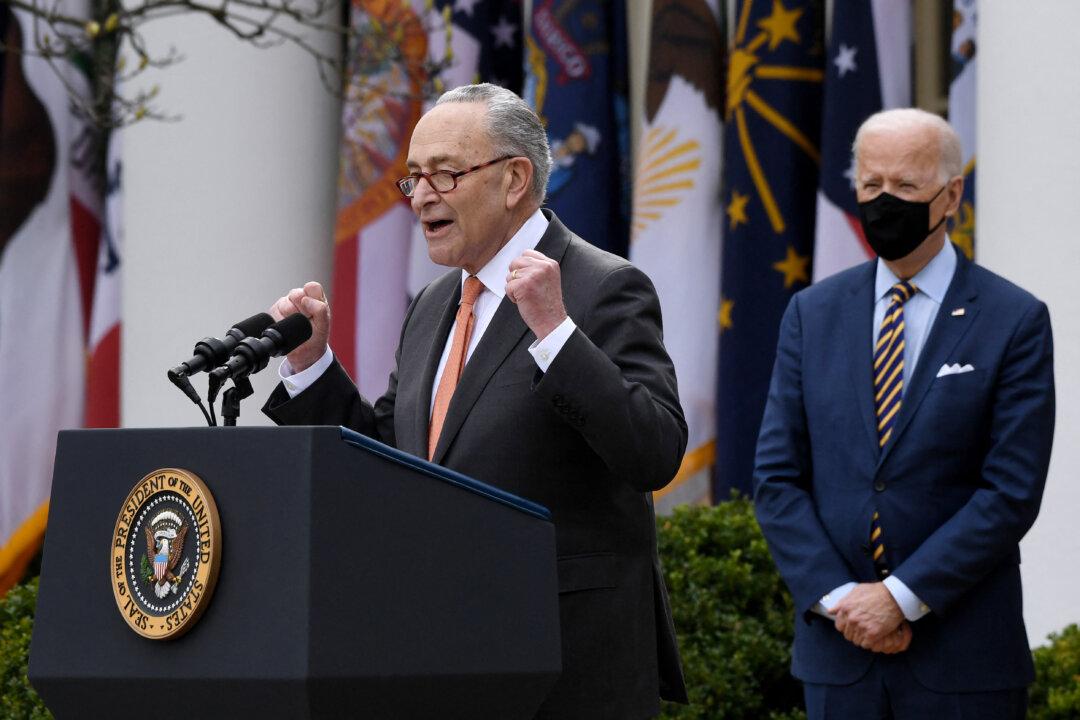Changing or eliminating the filibuster is possible if Republicans continue to oppose Democrats’ legislative priorities, Senate Majority Leader Chuck Schumer (D-N.Y.) said on March 14.
The filibuster is a 60-vote threshold in the upper chamber to end debate on a proposal and bring it to a vote. Senate Minority Leader Mitch McConnell (R-Ky.) on March 10 called it “the essence of the Senate.”





